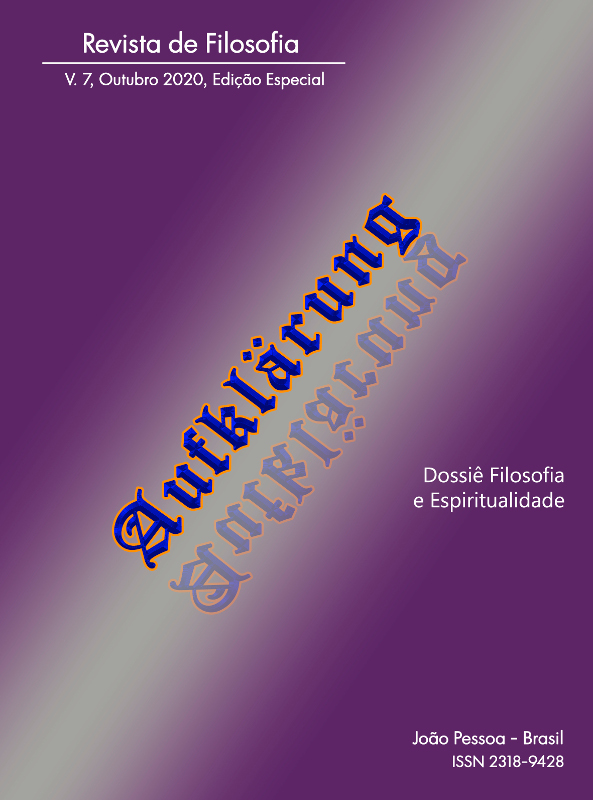A infinitude do corpo como abertura para o filosofar em Merleau-Ponty
DOI:
https://doi.org/10.18012/arf.v7iesp.56747Keywords:
MissingAbstract
The aim of this article is to reflect the relationship of the body and its finitude to philosophize in Merleau-Ponty. It is a matter of reflecting on death as a dimension of the constitutive finitude of the body itself, which cannot be denied or avoided, but as a gift to the body in its finitude. Thus, Merleau-Ponty is not about death in his philosophy but about finitude. There is a correlation between Heidegger's and Merleau-Ponty's philosophy in the discussion of finitude, which is not surprising, because for the readers of these philosophers, the influence of Heideggerian thought in some conceptions of Merleau-Ponty's philosophy is perceived, either as approach or distance. In Heidegger, the reflection on death serves as a foundation for an authentic existence, since he is concerned with the question of the meaning of being, he carries out an existential analysis of man, the only entity in which being unfolds. It is in this sense that he proposes to think about the problem of the human and, consequently, his relations with the world, with others and with his own finitude. For Merleau-Ponty, finitude is taken as an experience of the finitude of one's own body and as an opening to authentic philosophizing that opens up in perception. When finitude is not considered as a presence of the body, one lives on the periphery of incarnate existence, as it cannot understand either birth or death as the unfolding of the same event in life. This understanding goes through the perceptual experience of the finitude of apprehending that both birth and death reveal how we are immersed by the body in sensitivity. It is the experience of the body that now enters the scene through the experience of finitude. This metamorphosis or constitutive paradox triggered in the experience of the body only attests that the reflection on death does not take place in a pure intellectual act that seeks to think about this dimension that, like birth, is beyond our control, but it is necessary to understand the finitude of the body. Facticity is the certainty that we are present in the world and that time is not outside of us, but happens through us. Thus, when weaving the web of perceptual experience, it - time - becomes, in its own sense, what allows us to understand exactly the belonging of the world to the subject and the subject to himself as an experience of finitude. For this reason, Merleau-Ponty insists that philosophy cannot ignore the problem of finitude because it would be to deny itself as a presence that wonders about the origin. Before asking what death is, it is necessary to experience the experience of finitude that makes the act of questioning philosophical.
Downloads
References
MERLEAU-PONTY, Maurice. Phénoménologie de la peceptionn. Paris: Gallimard. 2016.
MERLEAU-PONTY, Maurice. Le visible et l’invisible. Paris: Gallimard. 2015.
MERLEAU-PONTY, Maurice. O Metafísico no homem. Textos selecionados; tradução e notas Marilena Souza Chauí, Pedro de Souza Moraes. São Paulo: Nova Cultural, 1989. (Os pensadores).
CAMINHA, Iraquitan de Oliveira. O distante-próximo e o próximo-distante: Corpo e percepção na filosofia de Merleau-Ponty. João Pessoa: Editora Universitária da UFPB, 2010.
CAMINHA, Iraquitan de Oliveira, NÓBREGA, Terezinha Petrucia da. Compêndio MERLEAU-PONTY. São Paulo: LiberArs, 2016.
DILLON, M. C. Merleau-Ponty’s ontology. Evanston, Illinois: Northwestern University Press, 1998.
HEIDEGGER, Martin. Ser e Tempo. Tradução: Márcia Sá Cavalcante Schuback. Petróplis, RJ: Vozes, 2005. Vol. 1.
HEIDEGGER, Martin. Ontologia (Hermenêutica da facticidade). Trad. Renato Kirchner. Petropólis: Vozes, 2012.
Additional Files
Published
How to Cite
Issue
Section
License
Journal general policy
1.This journal works under a Creative Commons License aplied to online journals. That icence can be read in the following link: Creative Commons Attribution 4.0 International (CC BY 4.0).
2.Accordingly to this License, a)the journal declares that authors hold the copyright of their articles without restrictions, and they can archieve them as post-print elsewhere. b)the journal allow the author(s) to retain publishing rights without restrictions.
Metadata Policy for information describing items in the repository
1. Anyone may access the metadata free of charge at anytime.
2.The metadata may be re-used in any medium without prior permission, even commercial purposes provided the OAI Identifier or a link to the original metadata record are given, under the terms of a CC BY license refered for the Journal.







































